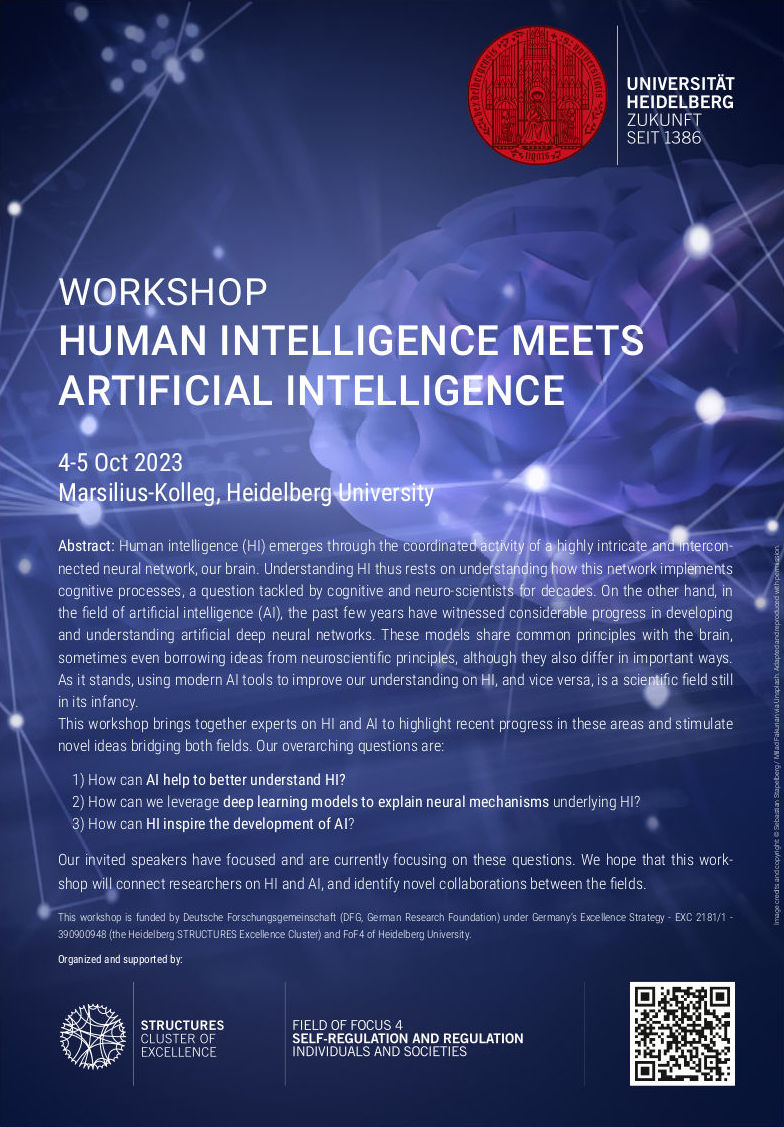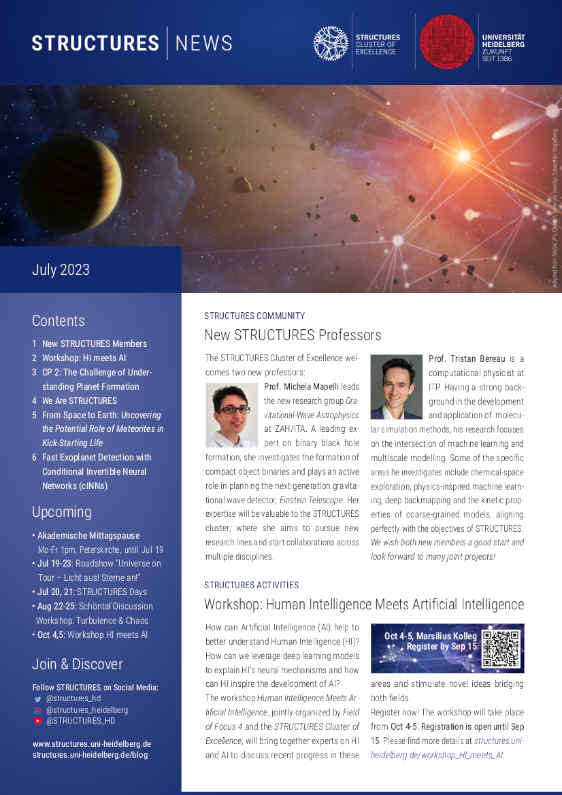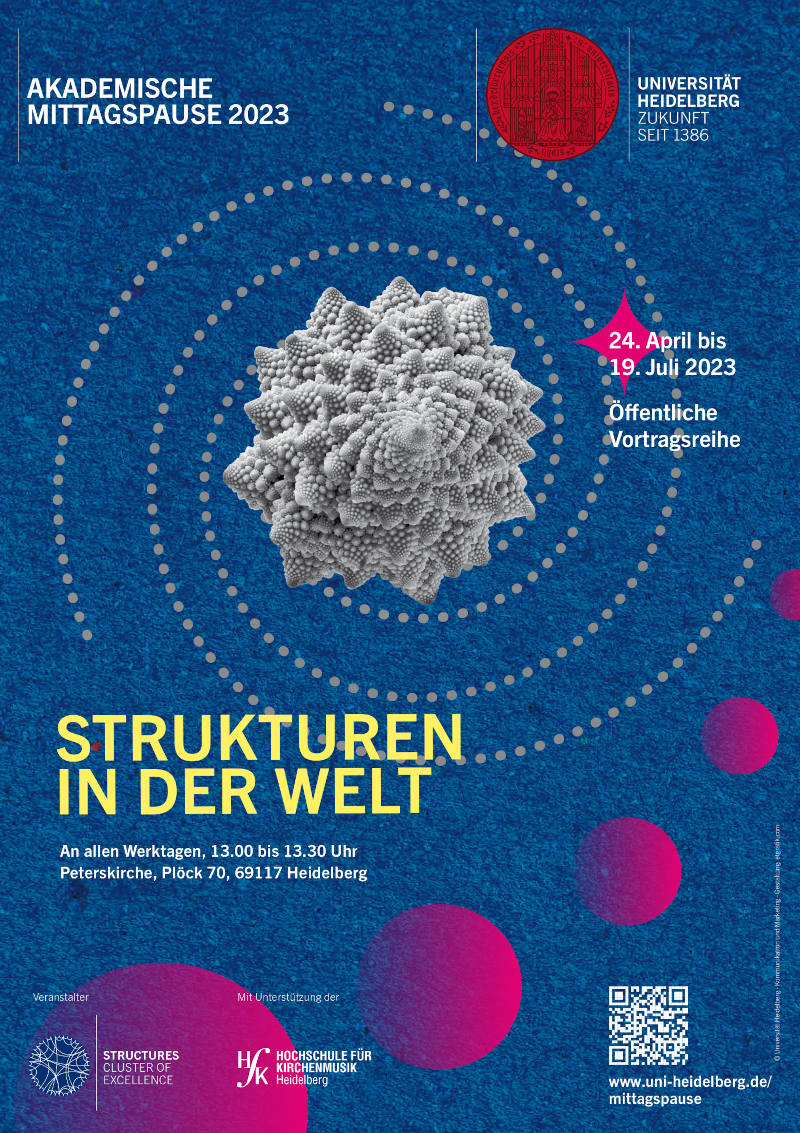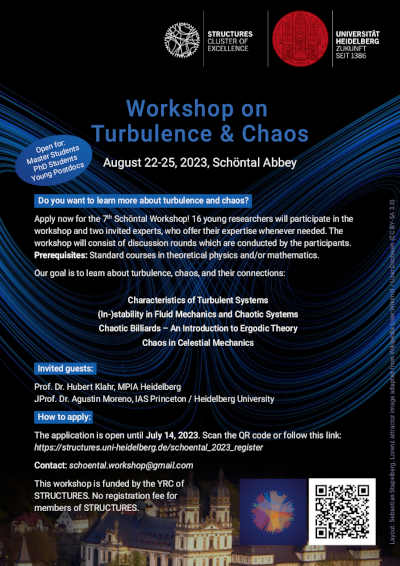Newsroom
Stay informed with our latest news and announcements on this page. For more in-depth content, we also encourage visitors to explore our bimonthly STRUCTURES Newsletter magazine, which features a variety of articles, interviews with members, and background information on our latest research and activities.
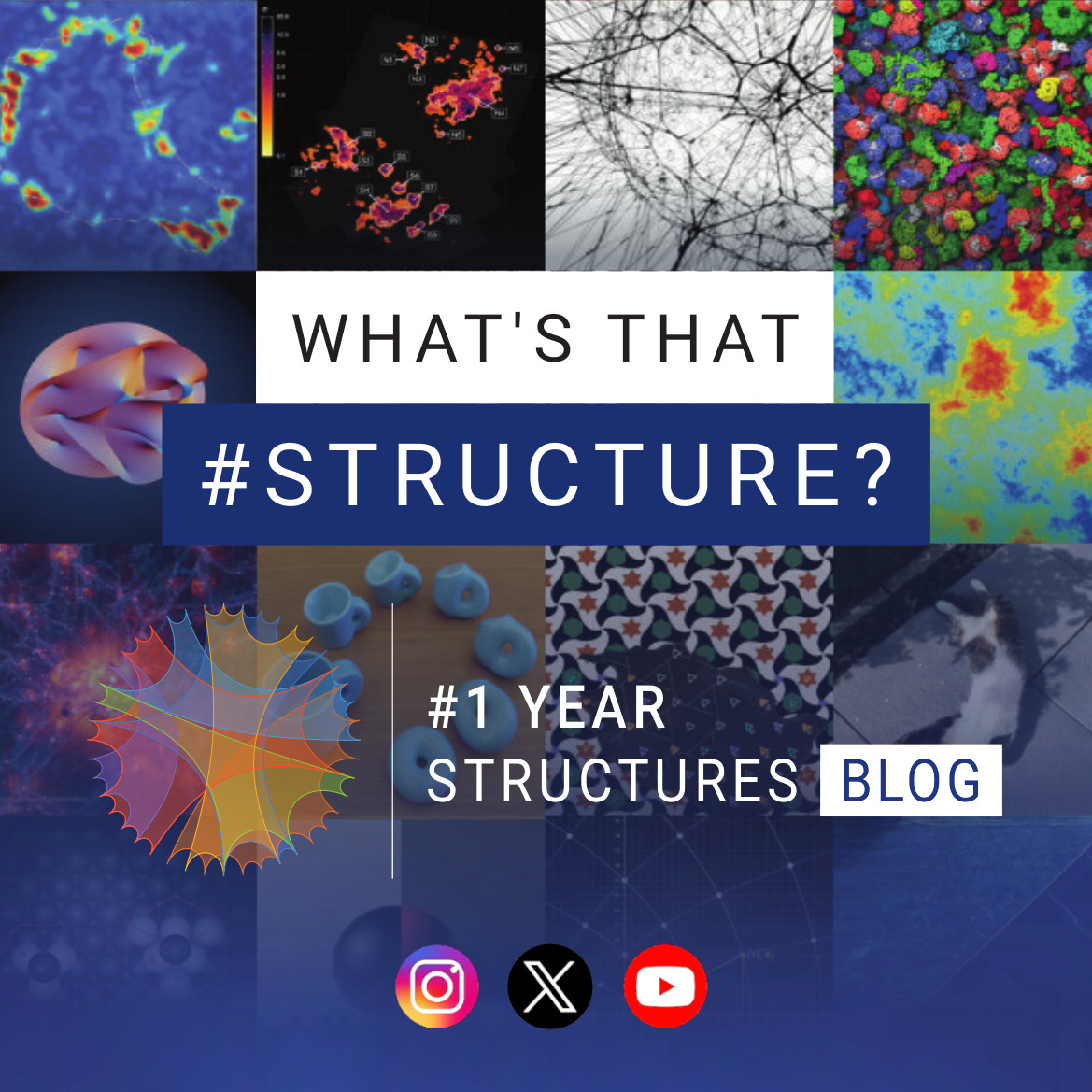
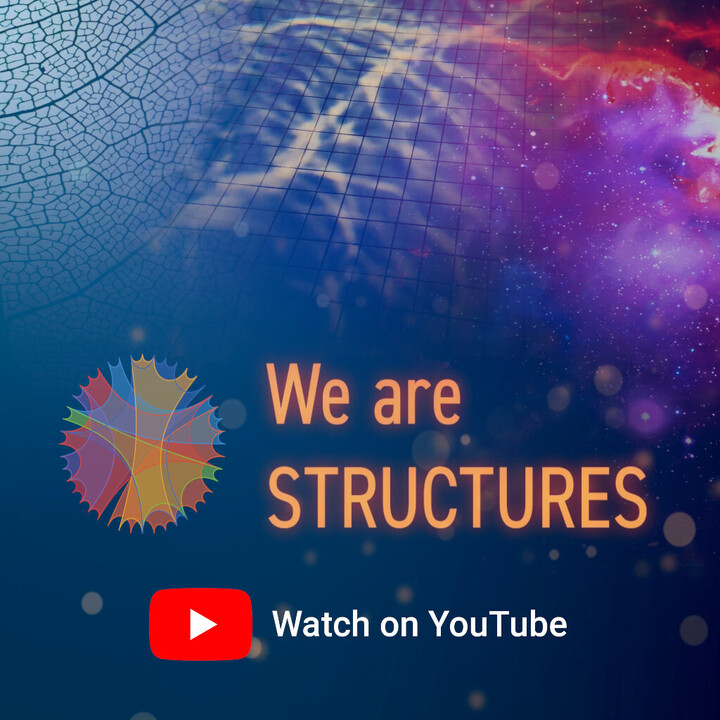
We are delighted to announce the first anniversary of the STRUCTURES Science Outreach Blog and our social media channels. Under the motto What's that Structure?, the STRUCTURES blog has been a source of knowledge, and inspiration for a broad, scientifically interested audience passionate about understanding how structure, collective phenomena, and complexity emerge from the fundamental laws of physics. Launched in August 2022, the STRUCTURES Blog has become a platform for the exchange, transfer and discussion of scientific ideas and knowledge across diverse disciplines, including physics, mathematics, astronomy and computer science. Complementing this, we provide an extensive offer of news, information, and science communication through our active and engaging social media channels aimed at the public, members, students and colleagues.
We are proud that over the past months, in addition to gaining many new authors and presenting exciting articles, we have achieved a steady growth in visitor numbers. Our blog articles are currently accessed more than forty times a day (median over three months). The STRUCTURES blog has found a big positive resonance also on our Social Media channels, where we count 160 Twitter and 193 Instagram followers as of July 31. In addition, with the beginning of STRUCTURES' Public Talk Series Akademische Mittagspause 2023, the STRUCTURES Cluster has launched its new YouTube channel as a new content offer, on which you can already find a large amount of content related to the talks.
Throughout August, we will celebrate the Blog's and Social Media anniversary with various posts, movies and a special blog article . As a beginning, and to inaugurate our recently launched YouTube channel, we present one of four upcoming short movies about the STRUCTURES Cluster of Excellence, titled "We Are STRUCTURES":
Short Film: We are STRUCTURES
YouTube: We are STRUCTURES
On the occasion of this anniversary, we would like to warmly thank all of our blog authors, colleagues, visitors and everyone involved behind the scenes. The STRUCTURES Blog would not be possible without you, and the efforts of many!
Weblinks:We are happy to announce the workshop Human Intelligence (HI) Meets Artificial Intelligence (AI) jointly organized by the STRUCTURES Cluster of Excellence and Field of Focus IV (Self-Regulation And Regulation: Individuals and Societies). The workshop will take place from October 4 to 5, 2023 at Marsilius Kolleg, Heidelberg.
The registration is open until September 15. The link and the programme can be found at:
https://structures.uni-heidelberg.de/workshop_HI_meets_AI.
About the Workshop: Human intelligence (HI) emerges through the coordinated activity of a highly intricate and interconnected neural network, our brain. Understanding HI thus rests on understanding how this network implements cognitive processes, a question tackled by cognitive and neuro-scientists for decades. On the other hand, in the field of artificial intelligence (AI), the past few years have witnessed considerable progress in developing and understanding artificial deep neural networks. These models share common principles with the brain, sometimes even borrowing ideas from neuroscientific principles, although they also differ in important ways. As it stands, using modern AI tools to improve our understanding on HI, and vice versa, is a scientific field still in its infancy.
This workshop brings together experts on HI and AI to highlight recent progress in these areas and stimulate novel ideas bridging both fields. Our overarching questions are: How can AI help to better understand HI, how can we leverage deep learning models to explain neural mechanisms underlying HI and how can HI inspire the development of AI? Our invited speakers have focused and are currently focusing on these questions. We hope that this workshop will connect researchers on HI and AI, and identify novel collaborations between the fields.
Further information:
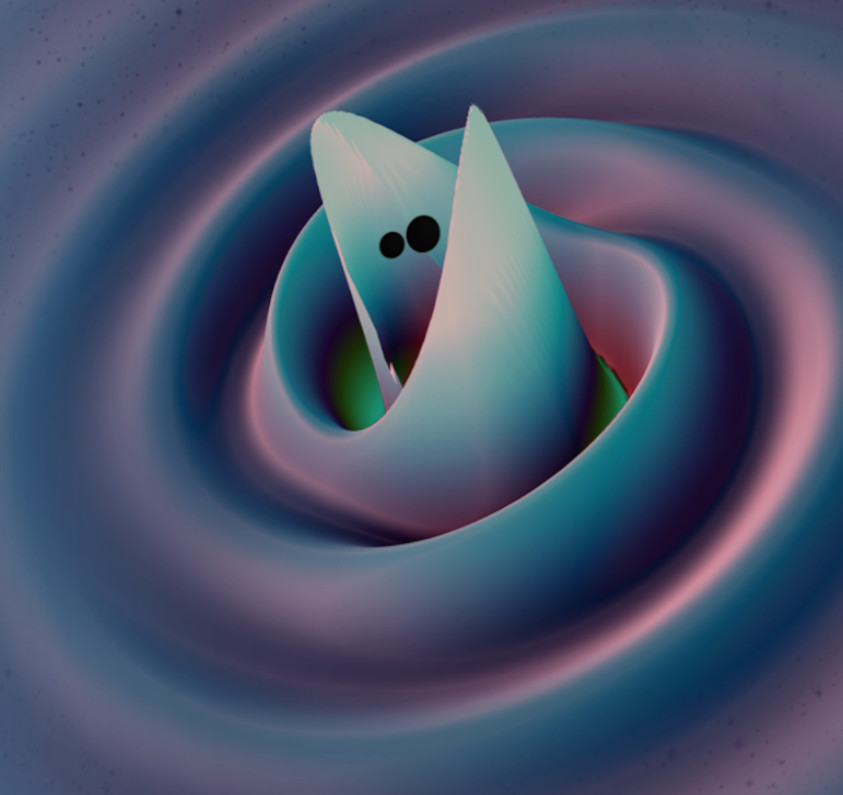
An international team of researchers led by STRUCTURES member Fabian Schneider predicts that black hole mergers produce chirp sounds in two universal frequency ranges.
They are mysterious, exciting and inescapable – black holes are some of the most exotic objects in the Universe. With gravitational-wave detectors, it is possible to detect the chirp sound that two black holes produce when they merge, approximately 70 such chirps have been found so far. Based on the frequency evolution of this chirp signal, scientists can infer the so-called “chirp mass”, a combination of the two individual black hole masses. So far, it has been assumed that the merging black holes can have any mass. In their new study, published in The Astrophysical Journal Letters, STRUCTURES Member Fabian Schneider (Heidelberg Institute for Theoretical Studies, HITS) and his team, however, predict that in this “ocean of voices”, chirps preferentially occur in two universal frequency ranges. The team's simulations align precisely with observations of the "stellar graveyard" – a collection of all known masses of the neutron-star and black-hole remains of massive stars – which reveal intriguing peaks at approximately 8 and 14 solar masses. With gravitational-wave astronomy paving the way for unprecedented insights into the cosmos, this research opens up a new frontier of exploration, helping scientists understand better where the singing black holes in this ocean of voices come from.
Weblinks:We are happy to present the twelfth volume of the STRUCTURES Newsletter with the following topics:
- New STRUCTURES Professors: Michela Mapelli & Tristan Bereau
- Workshop: Human Intelligence Meets Artificial Intelligence
- CP 2: The Challenge of Understanding Planet Formation
- We Are STRUCTURES
- From Space to Earth: Uncovering the Potential Role of Meteorites in Kick-Starting Life
- Fast Exoplanet Detection with Conditional Invertible Neural Networks (cINNs)
The STRUCTURES Project Management Office is happy to answer questions and to receive feedback.
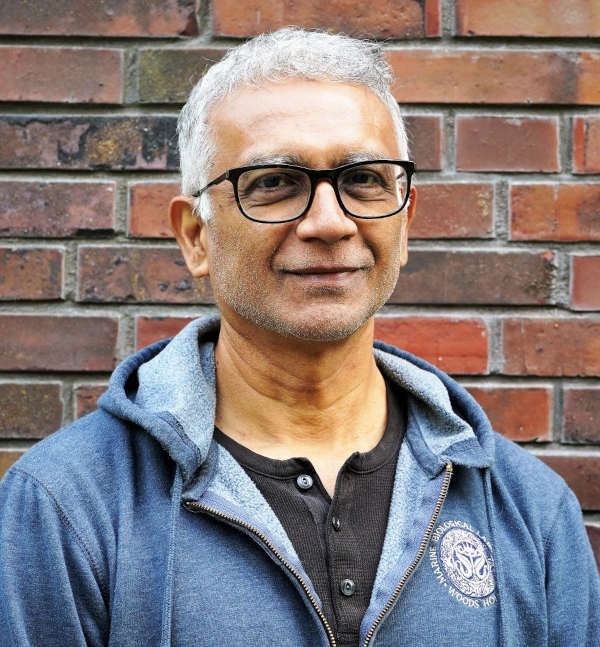
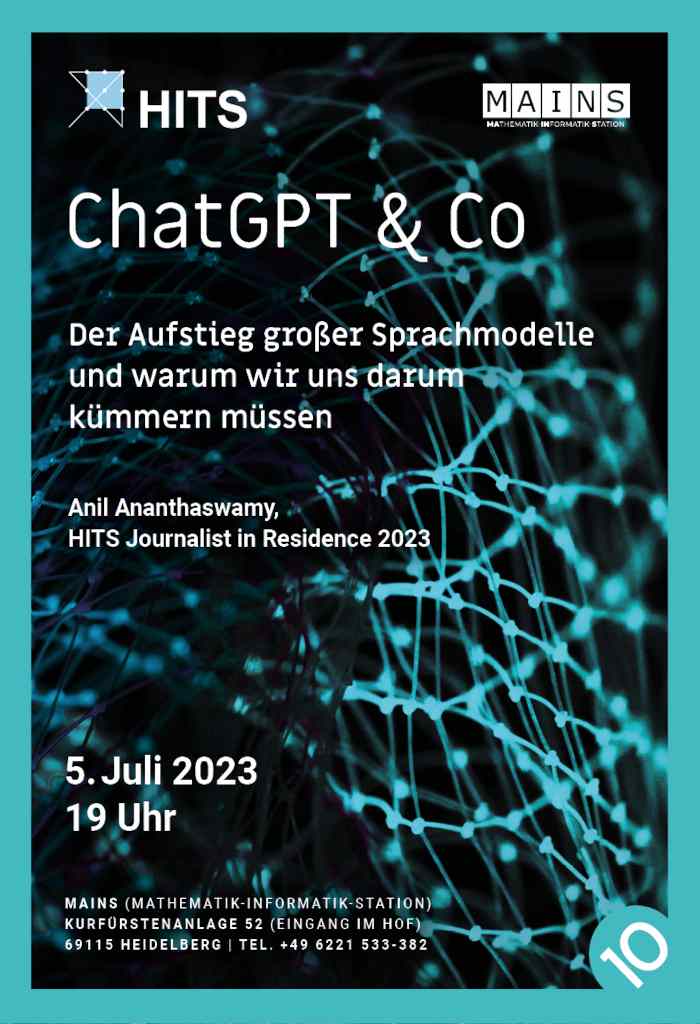
We are happy to announce the public talk by Anil Ananthaswamy, HITS Journalist in Residence 2023, titled “ChatGPT and its ilk - The rise of large language models and why we should care”. The event will take place on July 5, 2023, 7pm at the “MAINS” (Mathematik-Informatik-Station), located near the main station.
In his talk, organized in collaboration with the Heidelberg Laureate Forum Foundation, Anil Ananthaswamy will explain the foundations of large language models (LLMs), their training process and their impact on society. He will discuss the curious emergent properties of these AI models, such as their ability to solve math problems despite not being explicitly trained for it. The question of whether LLMs possess genuine reasoning capabilities or merely engage in sophisticated pattern matching will be examined. The talk will also highlight the dangers of large language models, as they are currently designed, and why it’s important for society to become aware of the promises and perils of such AIs, as the technology has reached a point of no return.
Anil Ananthaswamy, currently serving as “HITS Journalist in Residence” at Heidelberg Institute for Theoretical Studies (HITS), is an award-winning science journalist and author. With his extensive expertise in science communication, he has contributed to reputable publications such as the New Scientist, Quanta, Scientific American and Nature, among others. Leveraging his background as a software engineer and his authorship of three popular science books, Ananthaswamy brings unique perspectives to his analysis.
Further information:
Strukturen treten in allen möglichen Formen auf und prägen das Universum auf vielfältige und entscheidende Weise. Das Exzellenzcluster STRUCTURES der Universität Heidelberg bietet im Rahmen der Akademischen Mittagspause 2023 spannende Einblicke in die Erforschung von Strukturen von subatomaren Teilchen zur Kosmologie und von der fundamentalen Quantenphysik bis hin zu den Neurowissenschaften.
Das Format der Akademischen Mittagspause besteht aus 15-minütigen Fachvorträgen, allgemeinverständlich und unterhaltend, mit anschließender Frage- und Diskussionsrunde. Ergänzt wird die Veranstaltungsreihe zusätzlich von der Hochschule für Kirchenmusik durch musikalische Beiträge zum Thema „Orgelmusik sehen“. Alle Termine, Details und aktuelle Hinweise finden Sie auf unserer Übersichtsseite.
Zeit & Ort:
Bis 19. Juli Jeden Mo-Fr 13:00 bis 13:30 in der Peterskirche
We are happy to announce this year's iteration of the Schöntal discussion workshop. The topic will be Turbulence & Chaos and will take place between August 22-25, 2023. The Schöntal workshop has been called into life a few years ago and is designed to stimulate discussions between members of the YRC about a specific topic. It is targeted towards young researchers from physics and mathematics and does not require any special prerequisites. For more information, please note the poster below.
Further information:
